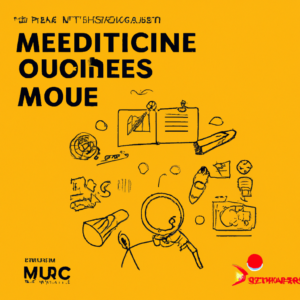In today’s fast-paced business environment, Human Resources (HR) professionals face the challenge of managing numerous tasks and responsibilities. From recruitment and onboarding to employee management and performance evaluations, HR teams are constantly juggling multiple responsibilities. However, with the emergence of Artificial Intelligence (AI), HR professionals now have a powerful tool at their disposal to streamline daily tasks and increase overall efficiency.
Automating Recruitment and Onboarding
One of the most time-consuming tasks for HR professionals is the recruitment and onboarding process. Sorting through resumes, scheduling interviews, and conducting background checks can be a tedious and time-consuming process. However, AI-powered tools can automate these tasks, saving HR professionals valuable time and effort.
AI algorithms can analyze resumes and job applications, identifying the most qualified candidates based on predefined criteria. This not only speeds up the recruitment process but also ensures that HR professionals can focus on more strategic tasks, such as interviewing and assessing candidates.
Additionally, AI can assist in the onboarding process by automatically generating and sending necessary paperwork to new hires. From employment contracts to benefits enrollment forms, AI can ensure that the onboarding process is efficient and error-free.
Enhanced Employee Management
Managing a large workforce can be a daunting task for HR professionals. AI can help streamline employee management by automating routine tasks and providing valuable insights.
For example, AI-powered chatbots can handle employee inquiries and provide instant responses to common questions. This reduces the burden on HR professionals and allows them to focus on more complex and strategic issues.
AI can also assist in performance evaluations by analyzing data from various sources, such as employee feedback surveys and performance metrics. By identifying patterns and trends, AI can provide HR professionals with valuable insights into employee performance, enabling them to make data-driven decisions.
Improved Employee Engagement
Employee engagement is crucial for the success of any organization. AI can play a significant role in enhancing employee engagement by providing personalized experiences and recommendations.
For instance, AI-powered platforms can analyze employee data, such as skills, interests, and career goals, to suggest relevant training and development opportunities. This not only helps employees grow professionally but also demonstrates the organization’s commitment to their individual growth.
AI can also assist in creating personalized employee recognition programs. By analyzing employee performance data, AI algorithms can identify top performers and recommend personalized rewards and recognition, fostering a culture of appreciation and motivation.
Ensuring Compliance and Data Security
Compliance with regulations and data security are critical aspects of HR management. AI can help HR professionals ensure compliance and protect sensitive employee data.
AI algorithms can monitor employee activities and identify any potential compliance issues. For example, AI can flag inappropriate behavior or identify patterns of non-compliance, enabling HR professionals to take appropriate action.
Moreover, AI can enhance data security by detecting and preventing potential threats. AI-powered systems can analyze network traffic and identify any suspicious activities, protecting sensitive employee data from unauthorized access.
Conclusion
Artificial Intelligence has revolutionized the HR landscape, enabling professionals to streamline daily tasks and increase overall efficiency. From automating recruitment and onboarding to enhancing employee management and engagement, AI-powered tools provide valuable support to HR professionals. By leveraging the power of AI, organizations can optimize their HR processes, improve employee experiences, and drive business success.




